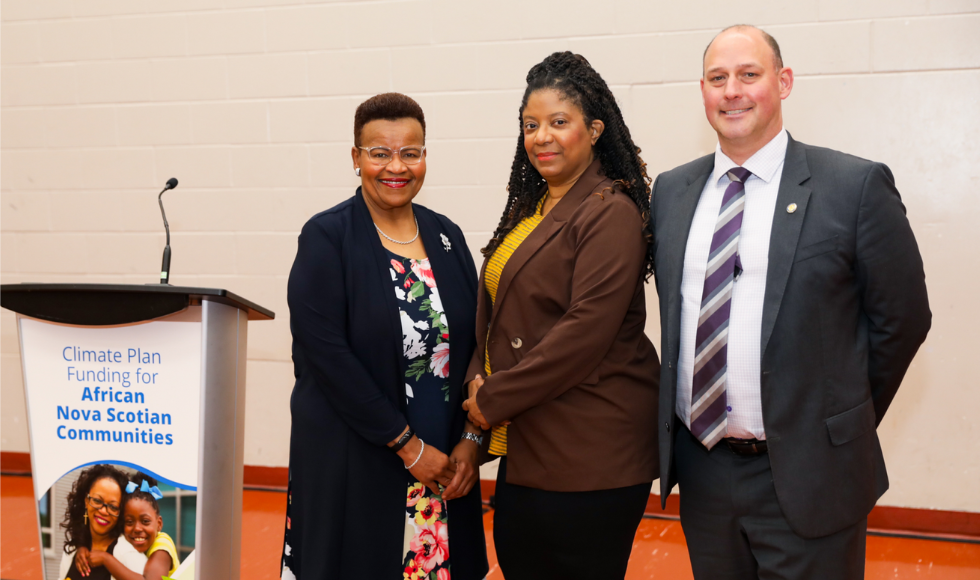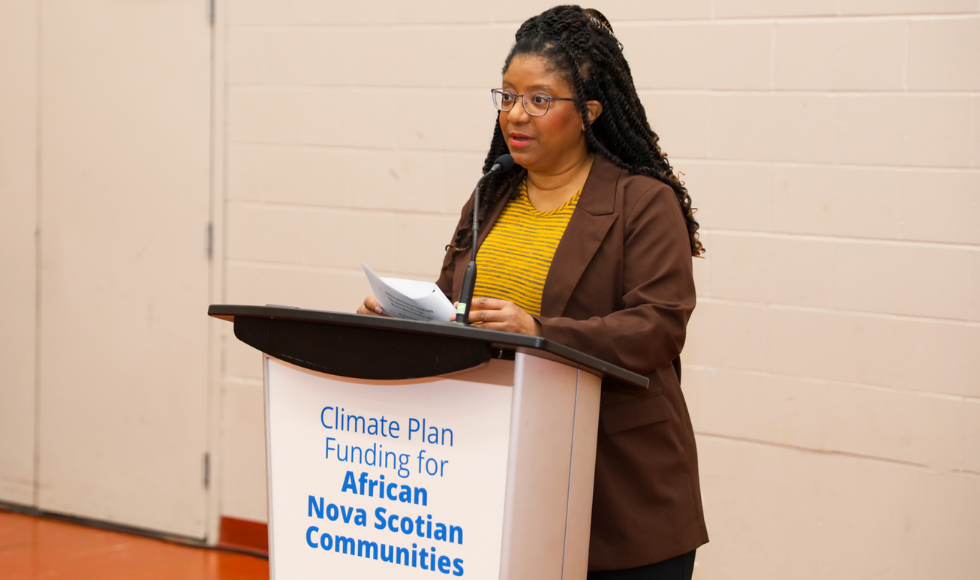Climate resiliency project in Nova Scotia funded for more than $1.7 million

(Left to right): African Nova Scotian Affairs Minister Twila Grosse, MLA for Preston; Ingrid Waldron, founder and Director of the Environmental Noxiousness, Racial Inequities and Community Health (ENRICH) Project; and Environment and Climate Change Minister Timothy Halman at the July 2 announcement. (Photo credit Communications Nova Scotia)
BY Sara Laux
July 4, 2024
Ingrid Waldron, the HOPE Chair in Peace and Health in the Global Peace and Social Justice program, has received more than $1.7 million from the Nova Scotia Department of Environment and Climate Change to work with African Nova Scotian communities around issues related to climate change and climate justice.
Through her non-profit organization, the Environmental Noxiousness, Racial Inequities and Community Health Project (the ENRICH Project), the three-year African Nova Scotian Climate Justice Ambassadors Program aims to train members in 25 African Nova Scotian communities in climate resilience, justice and advocacy.
“This training will enable participants to tackle broader systems change as it relates to climate change and related issues, giving communities more capacity to engage with decision makers and influence the policies that will affect them,” says Waldron, who was an associate professor at Dalhousie University in Halifax before coming to McMaster in 2021.
“We’re creating a community of practice for emerging leaders in climate organizing.”
The African Nova Scotian Climate Justice Ambassadors Program, which was announced by the Nova Scotia government on July 2, is the second phase of a project that began in 2023 and involved hosting workshops on climate change preparedness in 12 African Nova Scotian communities.
That project received $250,000 from the Sustainable Communities Challenge Fund.
The Ambassadors program will involve hosting similar climate preparedness workshops in 13 additional African Nova Scotian communities, as well as launching the online module training program on climate change and climate-related issues that will enable workshop participants to become Community Ambassadors.
Ambassadors, who will receive an honorarium, will participate in module sessions on heat, flooding, food insecurity, housing insecurity, public transit, emergency planning and climate resilience. This information will be delivered through presentations, small group interactive exercises, videos, podcast interviews and reading material.
From there, they will collaborate with their communities to build climate resilience community plans, specific to the needs and priorities of each area.

“African Nova Scotian communities have not traditionally been engaged enough in conversations around climate change, even though they are more vulnerable to the impacts of climate change,” explains Waldron, who points to last year’s wildfires that affected the south end of Shelburne, NS, one of the historic African Nova Scotian communities.
“With the Ambassadors program, community members will be handing down knowledge and information to others in the community, ultimately increasing engagement and developing a series of climate resiliency plans that are by the community, for the community and about the community.”
Through the ENRICH Project, Waldron and colleagues in McMaster’s Faculty of Engineering, along with community partners, recently ran a similar project in Black communities in the GTHA.
“The core of these initiatives is to engage people — to translate the ultra-scientific language of climate change in a way that people understand and will care about,” says Waldron. “So much of climate change messaging is about the head — numbers, statistics, scientific data. We’re trying to engage people’s hearts — to make them care about how climate change is going to affect their families, their communities.”


